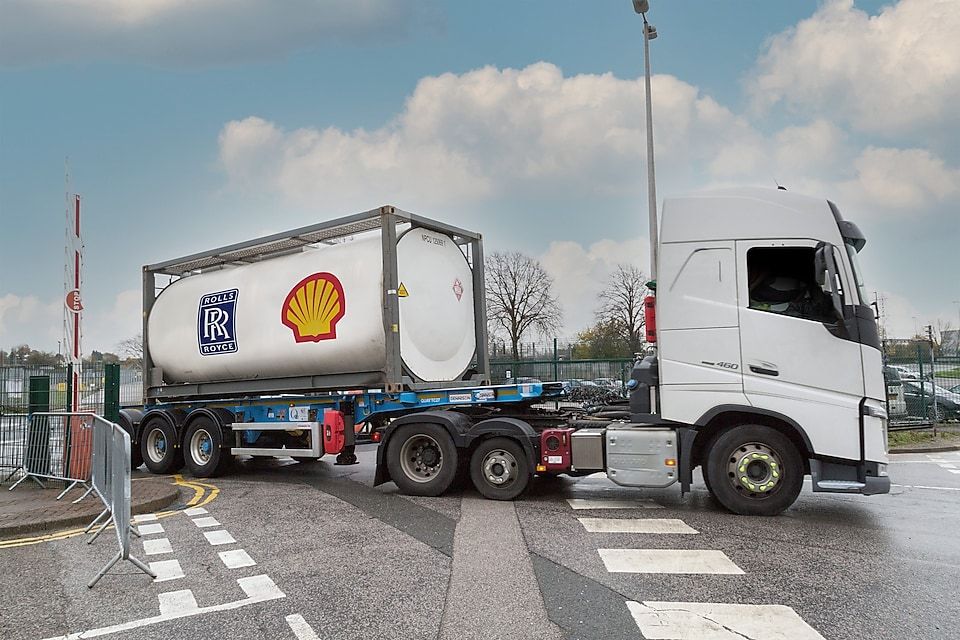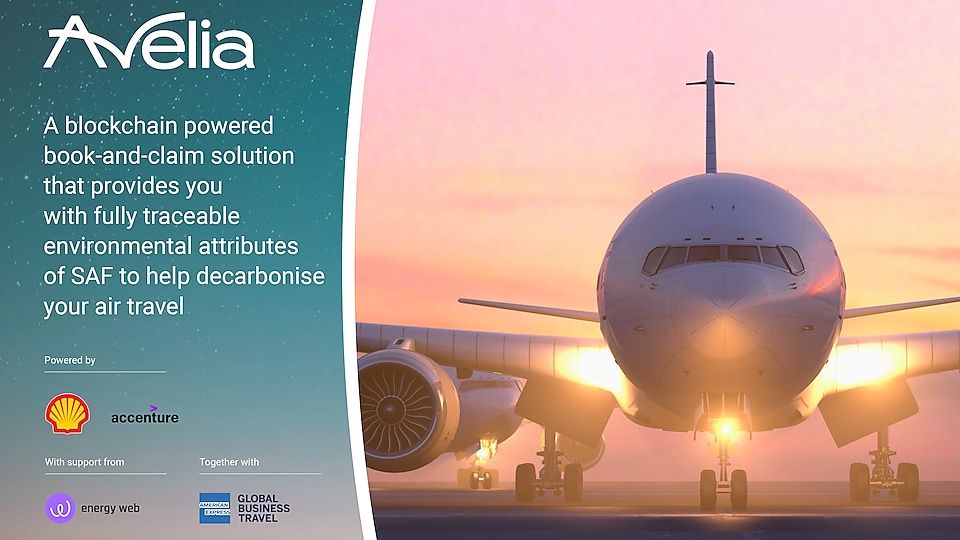Earlier this summer, American Express Global Business Travel (Amex GBT) and Shell Aviation made an announcement urging the private sector to assist in the decarbonization of air travel by joining their sustainable aviation fuel (SAF) program. Participators would have access to one million gallons of SAF at launch and can take advantage of the program's new blockchain-powered book-and-claim solution.
Industry powerhouses
The blockchain solution, Avelia, was developed by energy firm Shell and professional services outfit Accenture, with the support of the Energy Web Foundation (EWF). Nicole Sautter, Global Sustainability Manager, Amex GBT, recently emphasized to Simple Flying that Avelia provides customers trackable and verifiable reporting of emissions saved from purchasing SAF on the platform.
Altogether, customers are expected to benefit from SAF environmental attributes to reflect the carbon reduction benefits of the investment made. Notably, SAF can reduce life-cycle emissions by up to 80% compared to standard jet fuel and is a drop-in fuel that can be blended and used in today’s planes with no technical modifications required.
Discover more aviation news here.
The core benefits
Sautter explains that the collaboration helps carriers utilize SAF by combining the buying power of airlines and Amex GBT’s corporate travel customers at scale by aggregating their demand to decarbonize.
“Therefore, airlines identified for co-investment opportunities will benefit from access to SAF at more affordable prices because the cost is shared across the aviation value chain.
“Shell Aviation will supply SAF into the aviation fuel network where it is blended with conventional jet fuel. Book-and-claim enables travellers to invest in and benefit from SAF, even if SAF is not available at their departure airport. SAF will instead be fed into another aircraft in an airport where it is available.”
There is plenty of potential to be had with blockchain in the aviation industry. We’ve already seen the likes of SITA tout it as a tool to reboot travel safely, and this is something that Sautter also recognizes.
“We are interested in supporting scalable co-investment models, which allow companies to co-fund the cost of SAF. This is crucial for our industry to significantly scale SAF supply and use. Therefore an industry-accepted carbon accounting mechanism, like book-and-claim, is key for such programmes to credibly grow. Avelia’s data security and credibility are vital components to reaching scientific and market consensus for means of allocating SAF’s environmental attributes and helping us to accelerate the decarbonisation of aviation.
“The platform’s blockchain technology means that customers can be truly confident of security, transparency and accountability in their emissions reduction data. This, we hope, will encourage greater support and engagement from companies in pilot programs like ours with Shell Aviation.”
A new generation
All in all, the program seeks to create a transparent and credible way to reduce emissions from travel to help meet corporate sustainability goals. Amex GBT is also pleased that NGOs such as the Roundtable on Sustainable Biomaterials, the Smart Freight Centre, and Massachusetts Institute of Technology’s Center for Transportation & Logistics SAF Guidelines, are observing and engaging in the initiative.
Sautter concludes that a vital aspect of the Avelia platform is that it offers a solution that is both inclusive and neutral with respect to airlines, technology production pathways, fuels, and feedstock.
Blockchain is a growing list of records (blocks) that are connected using cryptography - each block includes a cryptographic hash of the previous block, as well as a timestamp and transaction data. Photo: Shell
Stay informed: Sign up for our daily and weekly aviation news digests.
While alternative solutions such as electric and hydrogen have been earmarked as long-term successors to traditional fuels, SAF is expected to be the initial answer before working alongside the other processes. Airlines, manufacturers, and airports all across the globe have been introducing landmark SAF initiatives. Just this week, Alaska Airlines finalized a deal for 185 million gallons of SAF. This move followed Lufthansa's order for up to 1.8 million of SAF from Shell. Impressively, the Lufthansa Group is already the largest SAF customer in Europe.
With plenty of investment at stake in this maturing fuel industry, blockchain will be a valuable asset in this next chapter. The technology’s distinct ability to efficiently share information instantly and safely between relevant stakeholders, whether they are airlines, passengers, or OEMs, gives limitless opportunities in the years to come.
What are your thoughts about Amex GBT's sustainable aviation fuel pilot program? What do you make of the overall prospects of the initiative? Let us know what you think in the comment section.



